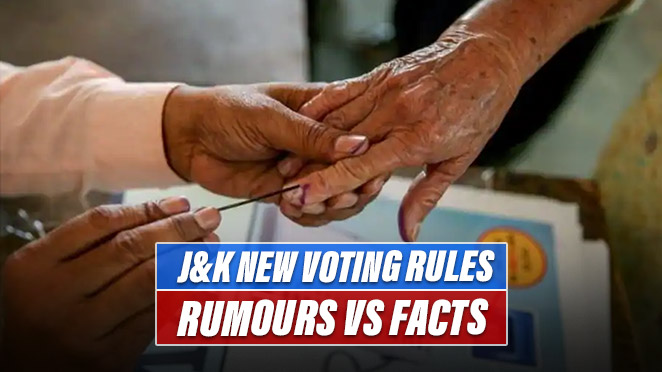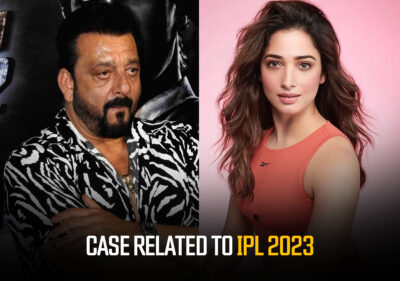
Following Chief Electoral Officer Hirdesh Kumar’s announcement that non-residents would be eligible to cast ballots in the union territory of Jammu and Kashmir, various assumptions have been made, followed by a number of rumours all across the social media. Here’s all you need to know about the new rules and regulations for voting in Jammu and Kashmir UT.
Hirdesh Kumar, the Chief Electoral Officer (CEO) of Jammu and Kashmir UT, has announced that the residents, including employees, students, workers, or anyone else from outside the UT, living ordinarily here, would be able to register their names in the voting list and cast votes in the J&K elections.
Also read: Harish Verma and Sweetaj Brar Announced Their New Punjabi Movie ‘Tere Layi’: Shares Poster
He further stated that even the army personnel posted in the peace stations in the UT of J&K, can get their names registered in the voter list and cast votes in the upcoming elections. However, this announcement has led to heavy criticism of the Central government by various regional parties of Jammu and Kashmir, including the PDP led by former CM Mehbooba Mufti.
Meanwhile, there is a buzz across the social media that anyone would be able to cast a vote in multiple states, means, his home state and where he’s residing. However, the Election Commission Of India makes it clear that no one can cast a vote in multiple states. For example, if a citizen of Madhya Pradesh moves to Assam and wants to vote there, he has to get his name removed from the voter list in MP first, then get their name added to the electoral roll in Assam.
Similarly, the regional parties of J&K like PDP and NC are claiming that the BJP would import the voters from outside the UT to win the elections, however, as per the rules, only those who are “ordinarily residing” in the Jammu and Kashmir UT, would be able to get their names registered in the voter list.
These changes came into effect on August 5, 2019, though it’s been raked up now in 2022. National Conference chief Farooq Abdullah has called for an all-party meeting on Monday to discuss this matter.




